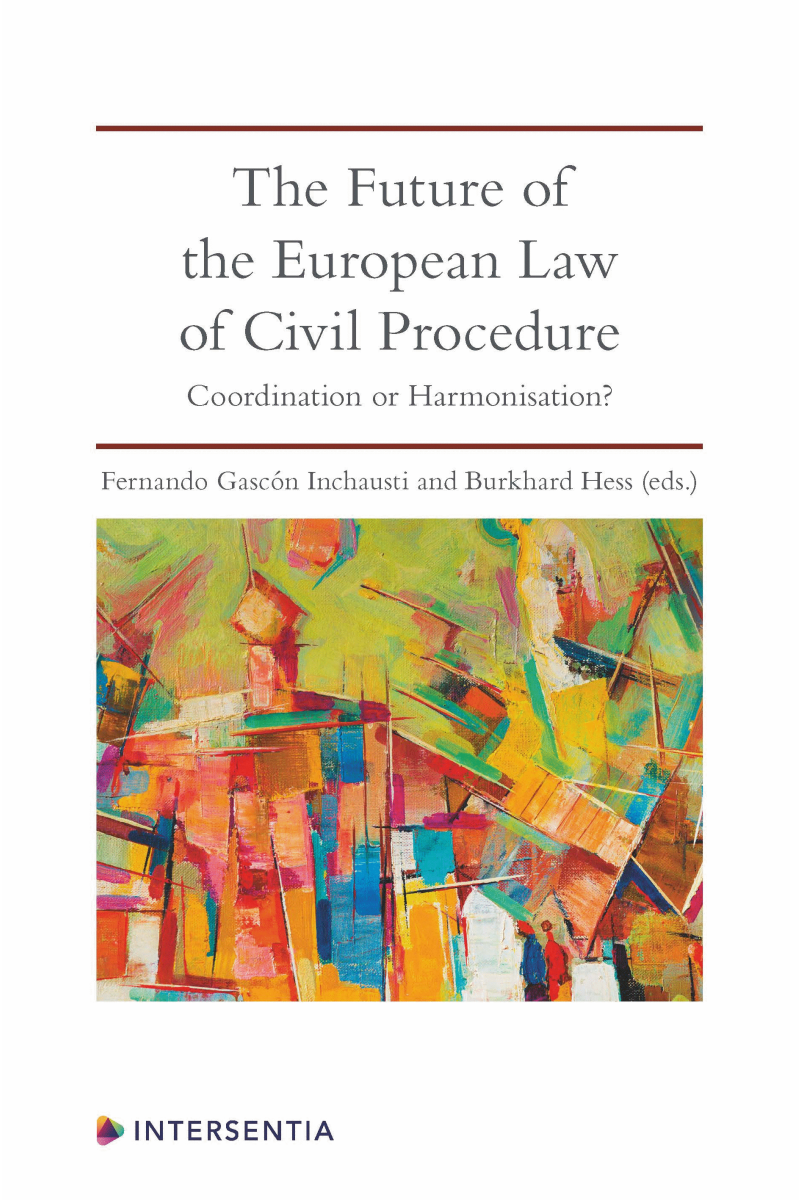 maestro
mastercard
visa
maestro
mastercard
visa

The Future of the European Law of Civil Procedure
Coordination or Harmonisation?

The European lawmaker is currently overseeing what appears to be a paradigm shift in the way that cross-border litigation is conducted within the European Union. This matter was initially conceptualised from the perspective of international judicial cooperation, based on the notion of mutual trust and mutual recognition. Recent developments, however, have introduced the option of harmonisation as a new regulatory approach.
The first part of the book is focused on the possible methodological approaches at hand. Special emphasis is placed on the role of the Court of Justice of the European Union as a “promoter” of a European Procedural Law (principle of effectiveness and principle of equivalence). The second part assesses to what extend harmonisation is already used: “horizontally”, through the regulations on international judicial cooperation, for example the European Account Preservation Order; and “vertically”, through the promotion of harmonised standards promoted by the directives on intellectual property rights and competition damages (access to information and evidence), or in the directive on trade secrets and in the field of data protection (protection of confidential information). With a view to the future, the final part examines two more recent initiatives: ELI-UNIDROIT and the proposal for a directive on common minimum standards of civil procedure in the EU.
The Future of the European Law of Civil Procedure: Coordination or Harmonisation? clearly outlines the motivations of the various national and institutional players in the regulation of civil procedural law and identifies potential obstacles likely to be encountered along the way that will be useful for every lawyer in the field.
Fernando Gascón Inchausti is Full Professor of Procedural Law at the Complutense University of Madrid, Spain. He is currently Executive Secretary General of the International Association of Procedural Law and General Assistant Editor of the International Journal of Procedural Law.
Burkhard Hess is Professor of Law and Founding and Executive Director of the Max Planck Institute Luxembourg for International, European and Regulatory Procedural Law. He is President of the ILA Committee on the Protection of Privacy in Private International and Procedural Law.
| Type of product | Book |
|---|---|
| Format | Paperback |
| EAN / ISSN | 9781780688596 / 9781839700071 |
| Weight | 498 g |
| Status | Available |
| Number of pages | xx + 292 p. |
| Access to exercice | No |
| Publisher | Intersentia |
| Language | English |
| Publication Date | Mar 6, 2020 |
| Available on Strada Belgique | No |
| Available on Strada Europe | No |
| Available on Strada Luxembourg | No |
Downloads
- Table of contents and preliminary pages
Fernando Gascon Inchausti, Esther Sánchez Coro - Introduction
Fernando Gascon Inchausti, Esther Sánchez Coro - I. Methodological Approaches
- Inital Remarks on the Methodological Approaches to Procedural Harmonisation
- Procedural Harmonisation by the European Court of Justice: Procedural Autonomy and the Member States' Perspective
Stephanie Law, Janek Nowak - Constitutionalisation of European Civil Procedure as a Starting Point for Harmonisation?
- Have the EU Regulations on Judicial Cooperation Fostered Harmonisation of National Procedures?
- II. The Current Situation: Vertical and Horizontal Harmonisation
- Harmonisation of the Rules on Protective Measures? The European Account Preservation Order
- Harmonising Access to Information and Evidence: The Directives on Intellectual Property and Competition Damages
- Harmonisation of Confidential Information Protection in Legal Proceedings: The Trade Secrets Directive
- Procedural Harmonisation and Private Enforcement in the GDPR
- III. Current Initiatives for Further Harmonisation
- The ELI/UNIDROIT Project: A General Introduction
- The ELI/UNIDROIT European Rules of Civil Procedure: Access to Information and Evidence
- Harmonisation of the Rules on Judgments and Appeals in Europe: A Few Remarks from the Inside
- The 2017 Directive Proposal on Common Minimum Standards of Civil Procedure in the Euroepan Union
- The 2017 Proposal of the European Parliament on Common Minimum Standards of Civil Procedure
- A Final Comment on the Future Evolution of Civil Procedure in Europe